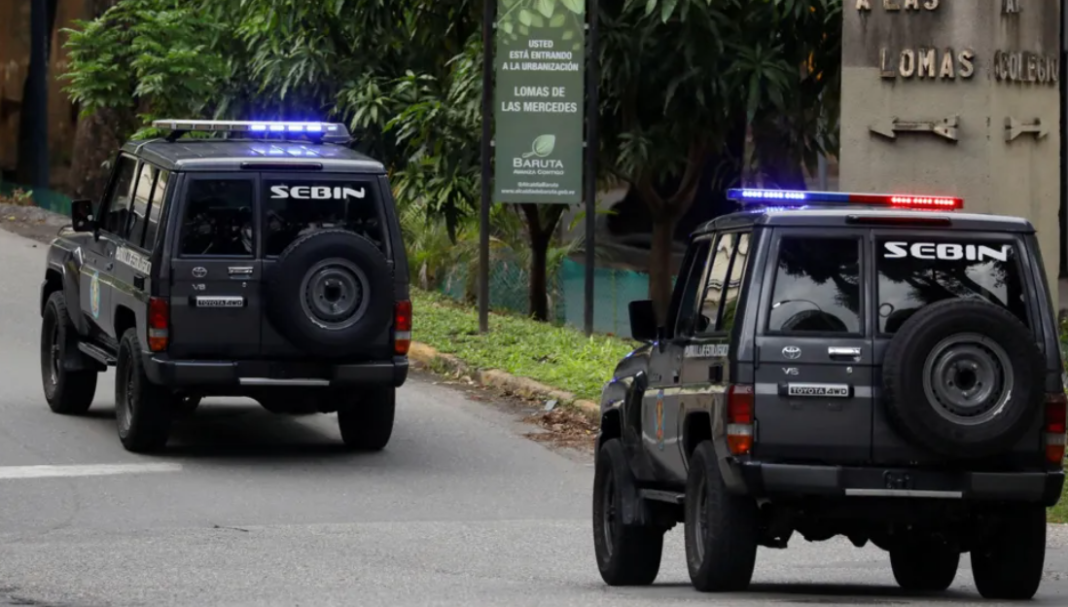(BBC News) Venezuelan security forces have surrounded the Argentine embassy in the capital Caracas, which is sheltering six Venezuelan political figures opposed to President Nicolás Maduro.
Members of the Venezuelan opposition posted images and videos of officers from the country’s intelligence service forming a perimeter around the embassy complex.
Opposition figures inside the building said they were under “siege” by Maduro’s regime.
The embassy, as well as Argentine interests in Venezuela, have been represented by Brazil since diplomatic relations between Argentina and Venezuela broke down over the summer due to the outcome of Venezuela’s presidential election.
On Saturday, the Venezuelan government revoked Brazil’s custody of the embassy, it said, in an apparent attempt to remove its diplomatic protection.
Argentina is among several countries to have disputed the official results of the presidential election, which gave Maduro a third term.
Others have called on the Venezuelan government to publish voting data, while allies of Maduro – including Russia and China – have recognized his victory.
Voting tallies published by the Venezuelan opposition indicate its candidate, Edmundo González, won – but western nations have stopped short of recognizing him as the president-elect.
The latest actions by the Venezuelan government come after the Argentine foreign ministry said it would ask the International Criminal Court to issue arrest warrants for Maduro and other senior officials.
Pedro Urruchurtu Noselli, an adviser to opposition leader María Corina Machado, who has been at the embassy since March, wrote on X that as of Saturday morning, there was “an increasing presence of hooded officials.
“They have closed off vehicular traffic on the street. We are still without electricity.”
Omar Gonzalez Moreno, another opposition official, said that the embassy had been without electricity since Friday evening.
“The siege and threat of attack on the Argentine diplomatic headquarters in Caracas, represented by Brazil, by security agents of the Maduro regime continues,” he added.
The Venezuelan government said it had been forced to take action after it supposedly uncovered “evidence of the use of the facilities… for the planning of terrorist activities and assassination attempts” against Maduro and his deputy.
Brazil said in a subsequent statement that it would continue to represent Argentina’s interests in Venezuela until another government was selected to fulfil the role.
It emphasized “the inviolability of the facilities of the Argentine diplomatic mission.”
The Argentine foreign affairs ministry said in its own statement: “Any attempt to interfere or kidnap asylum seekers staying in our official residence will be harshly condemned by the international community.
“Actions such as these reinforce the belief that fundamental human rights are not respected in Maduro’s Venezuela.”
The foreign ministry of Chile criticised Venezuela for what it described as acting “without justification”, adding the move showed “serious disregard” for international convention on diplomatic premises.
Venezuela’s decision has also attracted condemnation from Paraguay and Uruguay.


